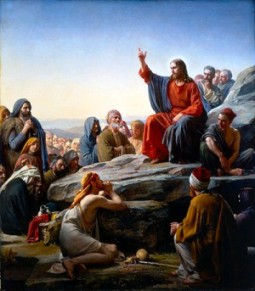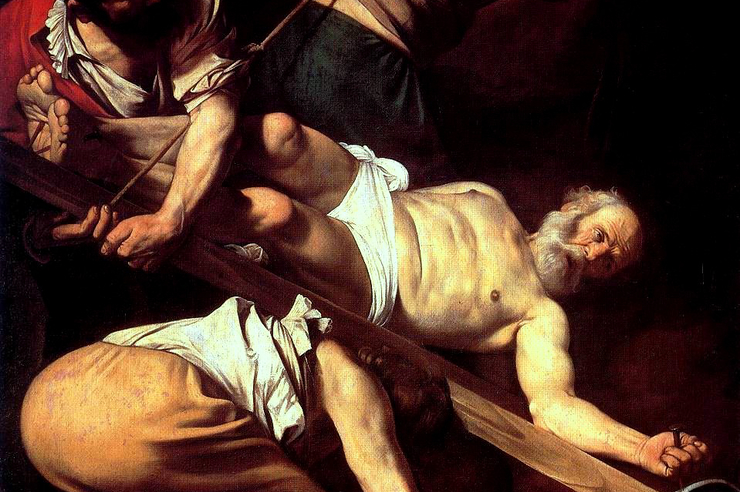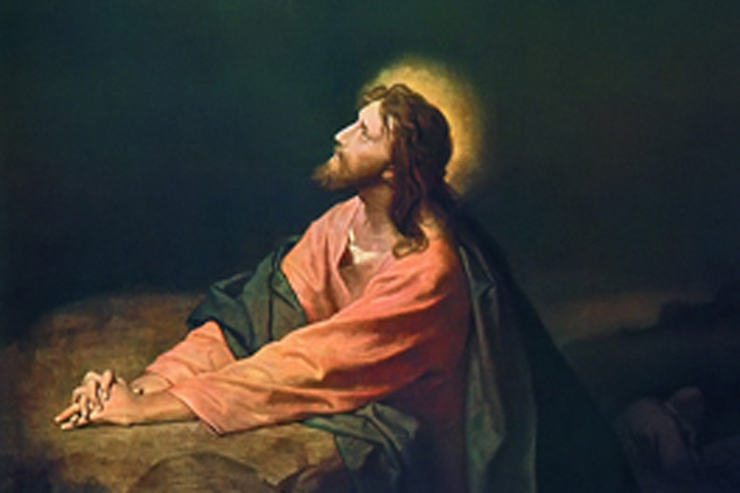 Two thousand years ago, a small group of people captured the attention and fascinated the imagination of the entire western world. At first, they were thought to be of no consequence, the followers of a man most people considered to be nothing more than an itinerant preacher. But when this man was put to death, a dozen of his followers rose up and began telling people about his life and teachings. They began telling the story of Jesus Christ.
Two thousand years ago, a small group of people captured the attention and fascinated the imagination of the entire western world. At first, they were thought to be of no consequence, the followers of a man most people considered to be nothing more than an itinerant preacher. But when this man was put to death, a dozen of his followers rose up and began telling people about his life and teachings. They began telling the story of Jesus Christ.
They were not the educated elite of their time, they had no political or social status, they were not wealthy and they had no worldly authority; and yet, from the very beginning people were joining this quiet revolutionary group a hundred at a time.
As their popularity soared, the prevailing authorities grew fearful of their power, just as they had been afraid of their leader. In some places, the authorities tried to put an end to this new group by randomly killing some of its members. But those chosen considered it the highest honor to die for what they believed. This only intrigued the hearts and perplexed the minds of the people of their time even more.
This small group of people were the first Christians. They were the original followers of Jesus of Nazareth and the first members of what we know today as the Catholic Church.
As the centuries have passed, much has changed. Today, Catholicism is the largest faith community on earth. With more than a billion members across the globe we are no longer the small minority group the first Christians were. Responsible for the birth of both the education and health care systems that stand as pillars in our modern society, we continue to lead with excellence in these areas. Throughout the centuries, the Church has also been the largest benefactor of the arts, nurturing these elements of cultural life that have the ability to elevate the human heart, mind, and spirit so effortlessly to the things of God. In these United States, where Catholics were once not permitted to apply for certain jobs, there are now more Catholic publicly elected officials than any other religious affiliation. The Church is one of the largest landowners in the world, owning property in almost every community from the most remote and rural locations to the most sophisticated cities. In this modern day and age where the life and dignity of the human person is threatened at almost every turn, the Catholic Church remains the world’s premier institutional defender of human rights. The Church today is a global entity of considerable proportions.
We have come a long way from our humble beginnings. And yet, as great as our achievements may be, as great as our numbers are today, we seem unable to capture the attention and intrigue the imaginations of the people of our own times the way our spiritual ancestors did.
The story of Jesus Christ is the most powerful story in history and has directly or indirectly influenced every noble aspect of modern civilization. But amidst the hustle and bustle of our daily lives, it is easy to become distracted and distance ourselves from this story. From time to time, someone comes along who reminds us of the spellbinding power the Gospel has when it is actually lived. Some of these men and woman are the saints who have become household names, and others are just ordinary people: parents and grandparents, nurses and schoolteachers, financial advisors and entrepreneurs.
We have become too comfortably a part of the modern secular culture, and this comfort has resulted in a dangerous complacency toward the life-giving words of the Gospel. Too often, we listen to these words but do not allow them to penetrate our hearts and transform our lives. There is something ultimately attractive about men and women striving to become all God created them to be. It is this striving that we need to rediscover as a Church.
We have lost the striving. This striving that is so important to the life of the Church is not the human striving that says, “Let’s come up with a plan and make things happen.” But rather, the striving that relies upon the Spirit of God to illumine, instruct, and guide us at every turn. God doesn’t want to control us, nor does he want us to ignore him. God yearns for a dynamic collaboration with each and every single one of us.
The first Christians were not perfect and nor were the saints. They lived in communities that were torn by strife in ways remarkably similar to what we are experiencing today, and they struggled with the brokenness of their own humanity in the same way you and I do. But they were dedicated to the basics.
Catholicism is not a football game, but St. Paul once compared the Christian life to athletics and I would like to continue the analogy. Championship winning teams are not necessarily those with the most talented players, or those with the most ingenious new plays, nor are they necessarily the teams with the most resources or superior knowledge of the game. The very best coaches will tell you that teams that win championships are those that focus on the basics, and master them together.
We need to get back to the basics.
I know this may sound cliché or trite, but from what I have seen when Catholics dedicate themselves to the basics of our rich and dynamic spirituality extraordinary things begin to happen.
The first Christians intrigued the people of their time, so did the saints, so do ordinary people who embrace the Christian life today. In the great majority of cases they don’t do anything spectacular. For the most part they commit themselves to doing simple things spectacularly well and with great love, and that intrigues people. We need to intrigue the people of our time in the same ways.
Who does your life intrigue? Not with spectacular accomplishments, but simply by the way you live, love, and work.
If we live and love the way the Gospel invites us to we will intrigue people. Respect and cherish your spouse and children, and people will be intrigued. When we work hard and pay attention to the details of our work it is intriguing. When we go out of our way to help those in need, people are intrigued. When we do what is right even when it comes at a great cost to ourselves, people are intrigued. Patience, kindness, humility, gratitude, thoughtfulness, generosity, and forgiveness are all intriguing.
Get your FREE copy of Rediscovering Catholicism at www.DynamicCatholic.com













